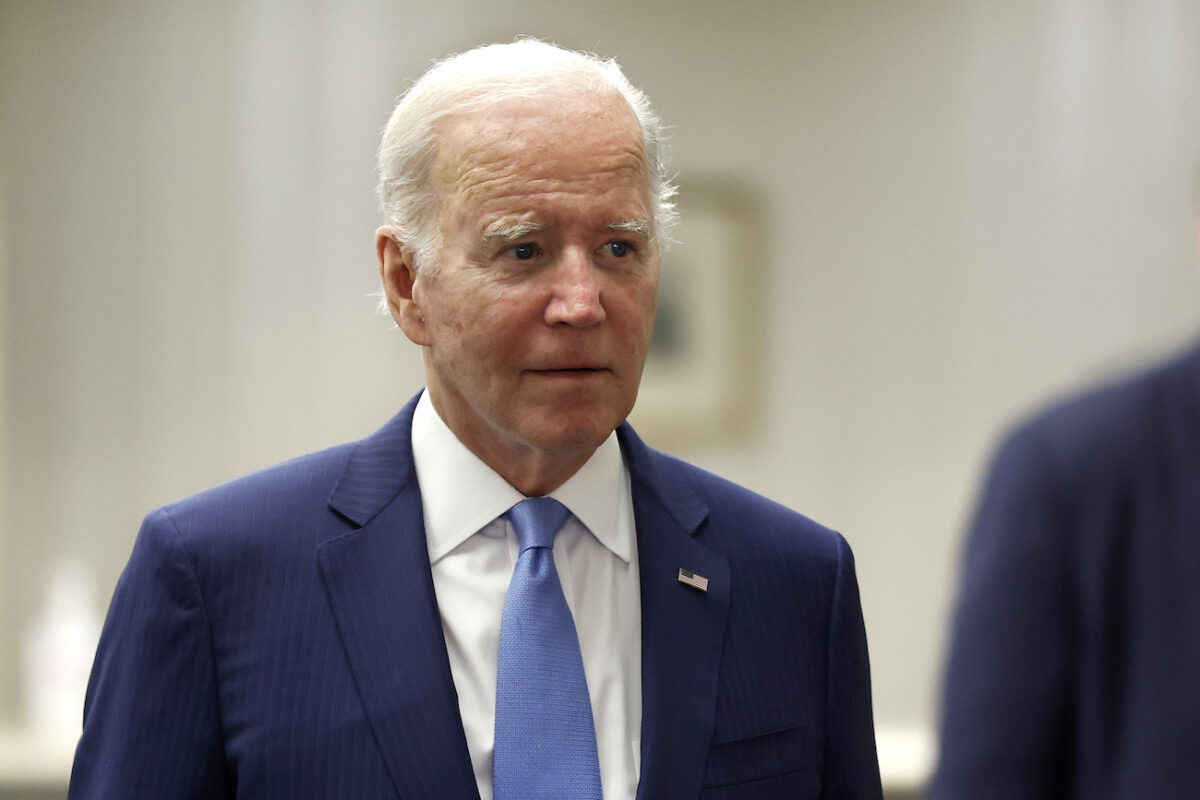

Debt ceiling talks are showing “steady progress,” according to the White House late on Thursday, amid a looming June 1 federal default deadline.
President Joe Biden is currently in Hiroshima, Japan, for the Group of Seven (G-7) Summit.
He received an update Thursday morning from his designated negotiating team, as they continue trying to reach a bipartisan agreement with Republican lawmakers over a framework for the budget, according to a White House official.
Steady progress is being made in the negotiations, the president’s team informed the White House official. The phone call lasted 20 to 30 minutes, according to press secretary Karine Jean-Pierre.
In the phone call, Biden directed his team to continue pressing for a bipartisan agreement, and made clear the need to protect health care programs for Americans, the White House official said. Biden “remains confident” Congress will reach an agreement to avoid default.
The latest update from the White House on Thursday came hours after House Speaker Kevin McCarthy (R-Calif.) told reporters, “I see the path that we could come to an agreement,” adding, “I think we have a structure now.”
The negotiators—including Steve Ricchetti, counselor to the president, and Shalanda Young, director of the Office of Management and Budget, Rep. Garret Graves (R-La.), and unnamed members of McCarthy’s staff—are still in talks over the spending caps, and the amount and duration of an increase or suspension to the debt limit, according to McCarthy.
The working group has met daily since May 16.
Since January, Biden has had a standoff with McCarthy over raising the nation’s $31.4 trillion debt ceiling.
Republicans, who control the House by a 222–213 majority, have been pushing for future spending cuts in exchange for a deal with Democrats to raise Congress’s self-imposed debt limit.
Meanwhile, Biden had refused to negotiate over the matter, saying that it would jeopardize the full faith and credit of the United States.
In April, the House passed the Limit, Save, Grow Act, which would raise the debt ceiling by $1.5 trillion, enough to last for about one year, while limiting federal spending, strengthening work requirements for some recipients of federal benefits, clawing back unspent COVID-19 relief funds, and loosening restrictions on drilling for oil and gas.
While continuing to say he would not negotiate concerning the debt ceiling, Biden has been willing to negotiate on other provisions of the GOP bill. He has signaled a willingness to consider some changes to work requirements, but stood firm on the health care programs.
“I’m not going to accept any work requirements that’s going to impact on medical health needs of people,” Biden said on Wednesday.
The U.S. Treasury has indicated it will be unable to stay under the limit after about June 1. This means the U.S. government won’t be able to pay its bills if the debt limit isn’t lifted. Economists have said this is likely to trigger a recession.
Biden is set to return to Washington, D.C. from Japan on Sunday. He was originally scheduled to visit Australia and Papua New Guinea, but canceled the trip to be back for debt limit talks.
U.S. Secretary of State Antony Blinken will visit Papua New Guinea in lieu of Biden next week, amid efforts to counter China’s rising influence in the Pacific.
Lawrence Wilson contributed to this report.




Discount Applied Successfully!
Your savings have been added to the cart.